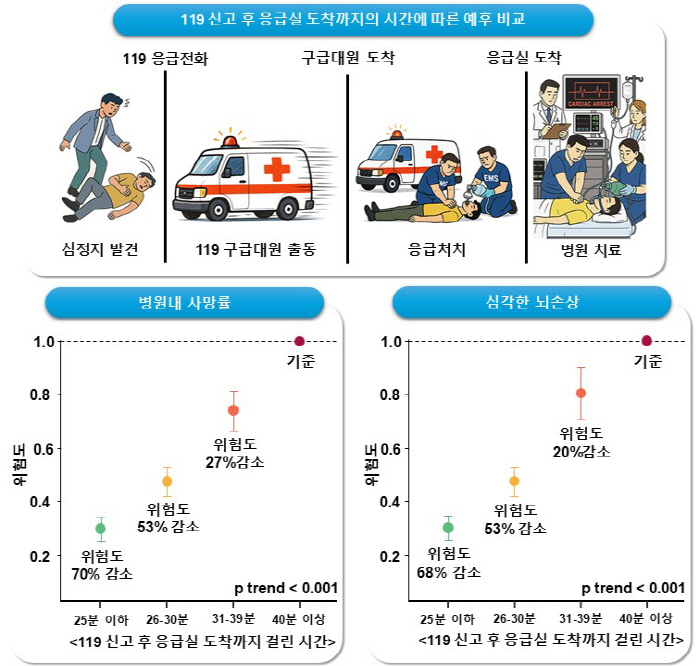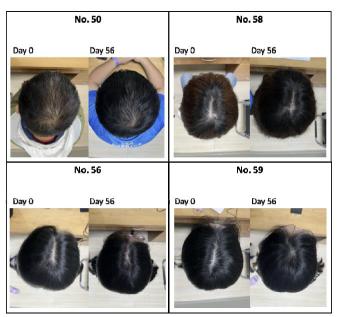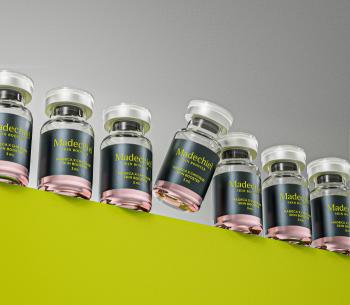Out-of-hospital cardiac arrest, 30 minutes of golden time will determine survival
Oct 14, 2025
|
The cardiology research team of Yonsei University Yongin Severance Hospital (Hospital President Kim Eun-kyung) (first author Professor Lee Oh-hyun, Dr. Heo Seok-jae, and corresponding authors Bae Sung-ah and Kim Yong-chul) checked data from 76,505 patients with cardiac arrest outside the hospital that occurred in Korea between 2016 and 2021.
A research team led by Professor Lee Oh-hyun, Bae Sung-ah, and Kim Yong-chul of cardiology and Dr. Heo Seok-jae of Yonsei University's life system information class analyzed the progress of patients by dividing them into ▲ 1st quintile (25 minutes or less) ▲ 2nd quintile (26 to 30 minutes), ▲ 3rd quintile (31 to 39 minutes) ▲ 4th quintile (40 minutes or more) according to the time it took to arrive in the emergency room after calling 119 emergency medical services.
As a result, the patient's survival rate and neurological course showed distinct differences starting at 30 minutes. Compared to patients who took more than 40 minutes to reach the emergency room, transfer patients within 26 to 30 minutes had approximately 53% lower in-hospital mortality and severe brain injury. Patients arriving in the emergency room within 25 minutes showed an overwhelming survival advantage, with a death rate of about 70% lower in the hospital and a severe brain injury rate of about 68%.
The research team also confirmed the accumulated effect of the delay in emergency room arrival time. For each 5 minutes increase in emergency room transfer, the in-hospital mortality rate increased by about 16% and the severe brain injury rate by about 14%. This is a result of correcting various variables such as eyewitness CPR performed at the scene and the use of an automatic cardiac shocker, indicating that the time required to arrive at the emergency room is an independent factor in determining survival regardless of these variables.
Professor Lee Oh-hyun emphasized that even if the best first aid is provided in the field, delayed arrival to the hospital has limitations in improving survival rates and recovering from brain damage. "This is a result showing the importance of advanced treatment such as professional resuscitation, body temperature management, and coronary intervention performed after arrival at the emergency room."
Professors Kim Yong-cheol and Bae Sung-ah explained, "This is the first large-scale study in Korea that proved the concept of golden time based on clear numerical evidence. The key achievement is to be able to set a specific goal of '30 minutes' rather than vaguely 'quickly' in the treatment of cardiac arrest patients."
The results of this study were published in the October issue of the international journal 'Mayo Clinic Proceedings' and are expected to be used as important evidence for improving the domestic emergency medical system and preparing guidelines for treatment of cardiac arrest patients in the future.
|
This article was translated by Naver AI translator.















